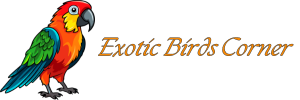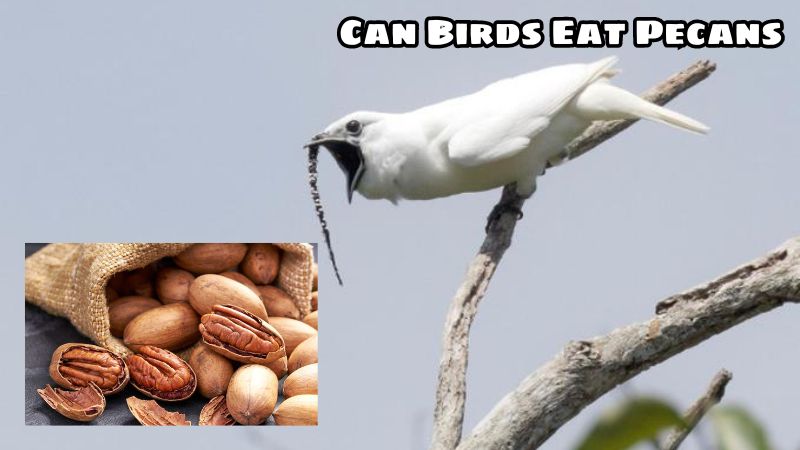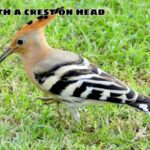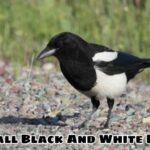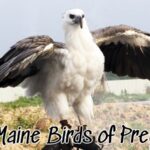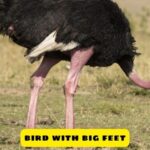Whether birds can eat pecans is an interesting question in research on their feeding behavior. Pecans are a nutritious fruit, popular in summer with a sweet taste and characteristic aroma. Although not all birds favor pecans, some species such as finches and terns can take advantage of these fruits if they are available in their natural habitat.
Pecans can also be part of their natural diet, providing nutritional and energy benefits during harvest season. Let’s explore in more detail with Exoticbirdscorner can birds eat pecans!
Structural characteristics of pecans
Pecans, also known as walnuts, possess unique textural characteristics that make them stand out among nuts.
1. Hard shell, difficult to separate
The most recognizable feature of pecans is the sturdy outer shell. The shell is dark brown, rough and thick, tightly covering the kernel inside. This shell helps protect the kernel from external influences such as impact, insects or bacteria. However, that is why shelling pecans is often difficult.
2. Fatty, nutritious filling
Hidden inside the hard shell is a fatty, delicious pecan filling. The nucleus is light brown, wrinkled in shape, often divided into two lobes. Pecan kernels are a rich source of protein, good fats, essential vitamins and minerals for the body such as vitamin E, vitamin B6, magnesium, potassium, phosphorus,… Thanks to their rich nutritional content, pecans Pecans bring many health benefits such as: supporting cardiovascular health, improving memory, strengthening the immune system,…
3. Small size
Compared to other nuts such as walnuts, almonds, pecans are relatively small in size. The average length of a pecan ranges from 2 to 5 cm. The compact size makes pecans easy to store and carry with you as a convenient snack.
In general, the structure of pecans with a hard shell protecting the fatty, nutritious kernel has created a special value for this nut. Not only is it a delicious dish, pecans also bring many health benefits, contributing to improving the quality of human life.
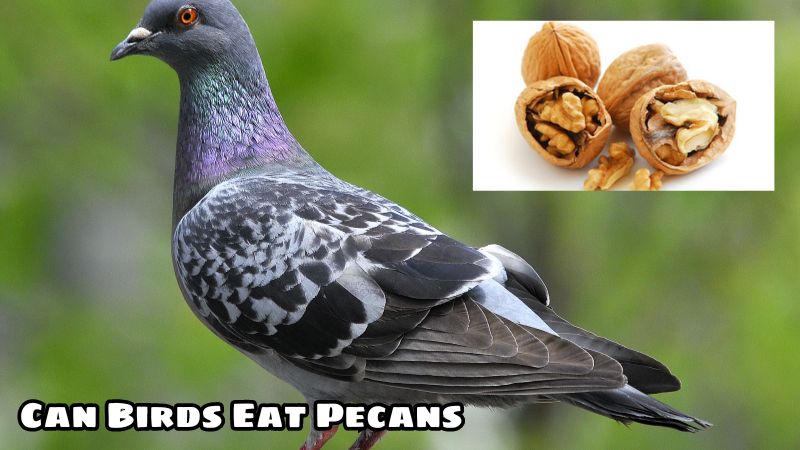
Can Birds Eat Pecans
Pecans, also known as walnuts, are a nutritious nut loved by many people. However, not all birds can enjoy this delicious dish. A bird’s ability to eat pecans depends on many factors, including beak structure, eating habits and jaw muscle strength.
1. Birds have strong, hard beaks, adapted to breaking seed shells
- Woodpecker: This bird is famous for its sharp beak and long tongue, helping them easily carve through tree bark to search for insects. Thanks to this strong beak, woodpeckers can also crack pecan shells to get to the kernels inside. Their long tongue will then slide into the crack and wrap around the kernel to pull it out.
- Sparrow: Despite its small size, sparrows possess surprising strength in their jaw muscles. They can combine their beaks and jaw muscle strength to crack pecan shells, however, this process often takes a lot of time and effort.
2. Birds have the habit of eating seeds
- Parrot: This intelligent bird possesses a strong, curved beak, helping it easily crack seed shells. Parrots often use their beaks to grip pecans and rotate them, gradually wearing away the hard shell until the kernel is revealed inside.
- Magpies: Despite their small size, magpies have sharp, pointed beaks. Thanks to this advantage, they can meticulously carve pecan shells and remove the kernels easily.
In addition to the birds mentioned above, there are a number of other bird species that are also capable of eating pecans, however, this ability is not common and depends on many factors such as nut size, shell hardness and source. other food in the bird’s habitat.
Some birds cannot eat pecans
Although some birds are capable of eating and digesting pecans, not all birds can enjoy these nutritious nuts. The main reason is due to different beak structure and diet.
1. Birds have weak beaks, not adapted to breaking seed shells
- Hummingbird: This small bird is famous for its long and thin beak, used specifically to suck nectar from flowers. The hummingbird’s beak is too weak and doesn’t have enough force to crack the sturdy shell of a pecan.
- Swallows: Swallows possess a short and weak beak, mainly used to catch insects while flying. Due to the inappropriate beak structure, swallows have many difficulties in separating pecan shells to get to the kernel inside.
2. Birds have a different diet
- Honeyeaters: The main diet of honeyeaters includes nectar and pollen. They do not have the need or ability to digest hard nuts like pecans.
- Raptors: Raptors often prey on small animals such as insects, lizards, rodents, etc. Due to their carnivorous behavior and digestive system not suitable for seeds, raptors cannot likely to eat pecans.
In addition, some other bird species may not eat pecans due to the large size of the nut, the hardness of the shell, or because other food sources in their living area are more abundant.
Effects of birds eating pecans
Bird eating of pecans brings both benefits and harm to humans and the surrounding environment.
Benefit
Helps birds supplement essential nutrients for their bodies: Pecans are a rich source of protein, good fats, essential vitamins and minerals for birds. Eating pecans helps birds have enough energy to function, reproduce and grow healthily.
Contributes to the dispersal of pecan nuts, helping trees regenerate and grow: Can birds eat pecans, they often do not completely digest the kernel inside. Pecan seeds are then released by birds in different places, creating conditions for the seeds to germinate and grow into new trees. This process makes an important contribution to the regeneration and growth of pecan trees in nature.
Harm
Competition with humans for food: Some birds, especially omnivorous birds, may steal pecans from people’s orchards. This causes economic losses for pecan growers and affects harvest productivity.
Damage to trees: Some birds can peck pecan shells to get to the kernels inside, causing wounds on the bark. This can affect the health of the tree and reduce fruit production.
Overall, the impact of birds eating pecans depends on many factors such as the number of birds, the species of birds, and how the orchard is managed. People need to take measures to protect orchards from birds stealing pecans, and at the same time encourage the development of bird species that play an important role in pollination and seed dispersal. Maintaining a balance between the benefits and harms of pecan-eating birds will contribute to ecosystem protection and sustainable development.
The importance of rational use of natural resources
Protecting bird habitat: Many human activities such as forest exploitation, using toxic chemicals, dumping waste,… have been causing negative impacts on bird habitat. Reasonable use of natural resources will contribute to protecting forests, water sources, land,… creating conditions for birds to live and develop.
Mitigate climate change: Climate change is one of the biggest threats to birds and other wildlife. Rational use of energy, limiting greenhouse gas emissions, etc. will contribute to minimizing climate change, protecting bird habitat and ensuring balance in the ecosystem.
Ensuring resources for future generations: Natural resources are limited, rational use will help protect resources for future generations, ensuring they can continue to enjoy the benefits of nature.
Epilogue
Birds can eat pecans depending on their species and habitat. Pecans contain many nutrients and water, have a sweet taste and attractive color, and are a rich source of food in nature. Birds such as sparrows and terns can make use of these fruits when they ripen and fall to the ground. However, not all birds favor pecans, and some species may have different eating habits based on their preferences and adaptations to their habitat.
